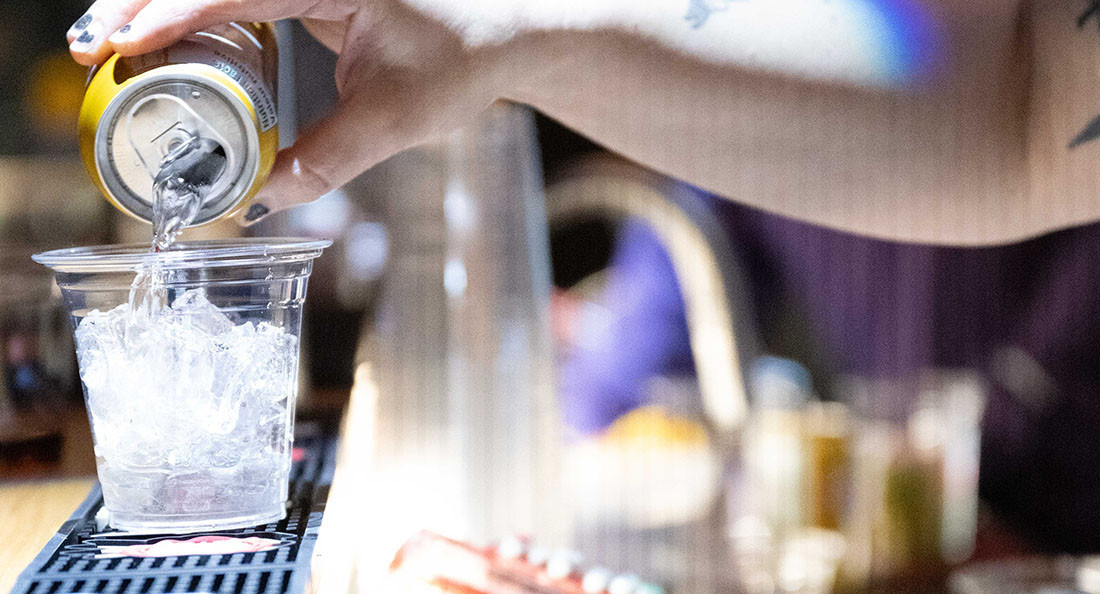Behind the bar
A peek at what it takes to run a venue
The bands, Roman Clarke and Courtney Fox begin loading in at 4 p.m. on Thursday, Feb. 1 at the West End Cultural Centre (WECC). They are greeted by the people working the lights and sound, who started an hour earlier.
While they set up, Meagan Stewart, the WECC house manager and volunteer coordinator, and assistant house manager Mark Cohoe restock the bar.
Cohoe started at 3 p.m., but Stewart’s day began at 10 a.m. when they stopped at the LC on the way in to pick up some needed drinks. Some ordering minimums have just gone up, so they have to make time in their workday to pick up drinks they used to have delivered.
“The amount I would have to order to have it delivered, so much of it would go bad,” Stewart says.
When people think of venues, she says, they often focus on things they can see: people serving drinks, taking tickets, selling merchandise and running the sound system. But they don’t think of what they can’t see, the things that happen in the background.
Each show production starts with ideas, communication, coordination and scheduling with departments and agents before the show is confirmed. It has all the work of a regular office job with phone calls, marketing, accounting and meetings. There is building maintenance, inventory, stock, drink trends and keeping up with sound technology and equipment.
“The things that keep us running,” Stewart says. “I always sum up my job as a house manager like this: if I’ve done my job right, you don’t realize I exist.”
That’s not the hard part. When they came in that morning, the mezzanine had a broken chair that had rusted through. The mezzanine was sold out for the show, and they had to find parts from the same make, since the chairs were salvaged from the Rex Theatre in 2008.
“Anything could go wrong at any time, and there are a lot of moving parts,” Stewart says.
One of the highlights of her job was when she got to plan the WECC’s first-ever Drag Story Hour.
“As a queer non-binary person, it was really important for me to put together something that represents what my community is about: freedom to express oneself,” Stewart says.
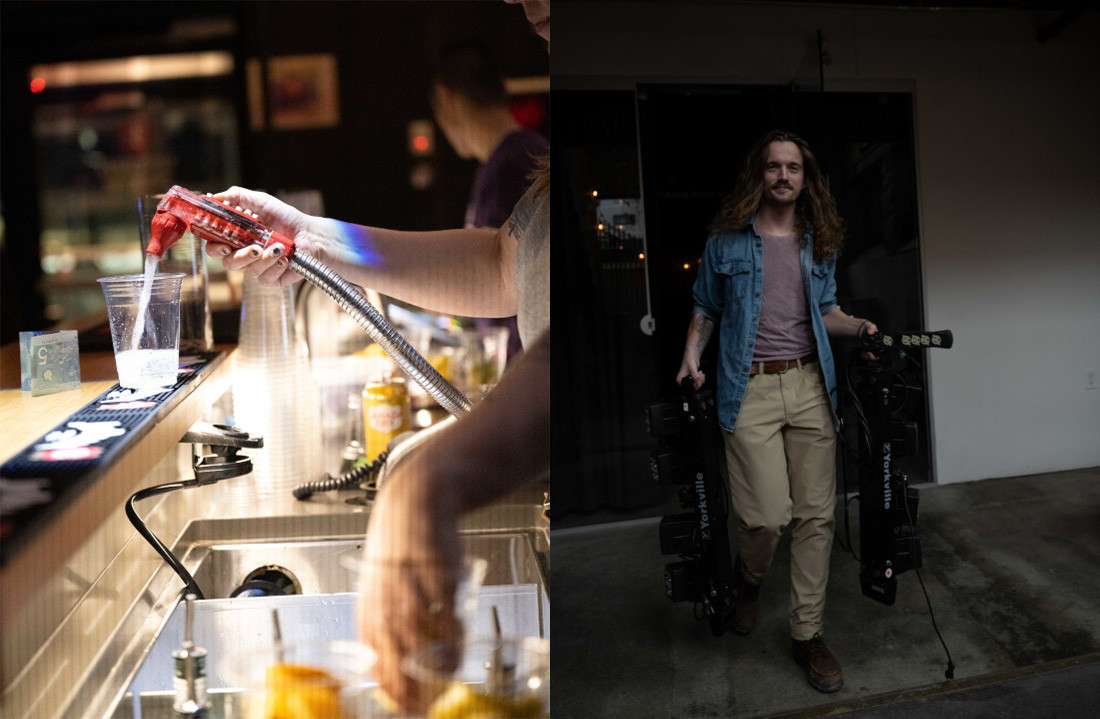
Left - Bartenders at the Park Theatre pour drinks during Women in Jazz on Friday, Feb. 2.
Right - Carter Happy, Darling Bar’s event booker, hauls equipment in preparation for First Fridays on Thursday, Feb. 1.
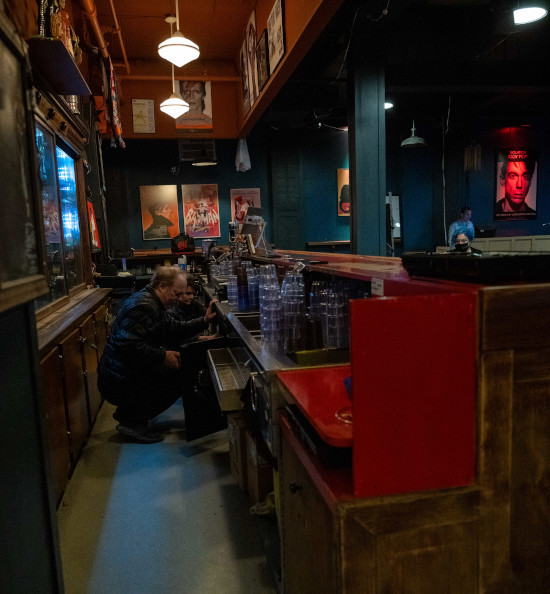
Dave McKeigan, who owns and operates both the Royal Albert Arms and the Pyramid Cabaret, restocks the bar at the Royal Albert Arms on Friday, Feb. 2.
‘Sweat equity and hard work’
Carter Happy fell into the event manager job at Darling Bar after helping run Mango Fest Manitoba. They find their job has many moving parts and requires them to wear “many hats.”
“I think switching hats all the time and putting out fires and trying to get things to run smoothly, especially in the current economic ecosystem we’re in, where teams are a lot leaner than they used to be, that does put more weight on every individual and makes us all more valuable but also more strained,” Happy says.
They hope the team will expand in the future if things pick up now that they’ve learned how to coordinate the events with the bar and the café.
“Everyone’s here to have fun because they love art, and being a small part of making that happen is kind of what makes it worth it,” they say.
Dylan Pereira, owner of Darling Bar, sits underneath the stairs where people hang out during concerts in one of their three areas that can be booked. He is currently reviewing the quotes and building permits required for the climbing wall, which was the original idea behind Darling Bar and the VA Cafe.
“I might have to rethink it, but there is definitely going to be climbing somewhere downtown,” Pereira says. “In developing or putting the space together to make it more of an event space, I had to build sound panels on the ceiling, which my dad and I built by hand.”
Jessee Kowalski, who works at The Handsome Daughter, started working at venues because he played in bands and wanted to be more involved.
That entails “a lot of thankless hours, a lot of sweat equity and hard work. It’s not easy, but it is rewarding,” he says, “The most rewarding part is to see people have a place to apply their trade and be creative.”
John Scoles, owner and manager of the Times Change(d) High and Lonesome Club, found his calling working venues at 12 years old. He lost the student-council election and became a social convenor instead.
“I realized pretty quickly that there’s nothing like music to bring people togeth- er in the best way. Plus, I’m just a total duct tape, staples and Christmas lights kind of guy,” Scoles, who calls himself the Times Change(d)’s janitor/president, says.
For him, the hardest part of running a venue is holding onto a space while delivering an endless stream of incredible shows. He likens it to festivals that do this once a year, except venues do it every week.
“You have to keep finding fuel somehow,” Scoles says.
According to Scoles, “It’s not about business, and you have to let go of that aspect.”
Instead, “you’ve gotta treat it like your heart. Trust it, listen to it, give it regular workouts, let it shine. These places are like campfires. Go scrounge for sticks and invite a few friends over to share the glow.” Some of Scoles’ favourite moments have been watching his staff turn into “‘seriously legit honky-tonk heroes,’ including Liam Duncan (Boy Golden), Grant Siemens and Sean Burns (Corb Lund), Andrew Neville, Amber Nielsen (Sweet Alibi), Josey Krahn, Jesse Millar (The Honeysliders), Matt Foster, Jaxon Haldane, Joanna Miller (Everybody) ... the list goes on forever, and the party never ends.”
The people who make venues work do it because they love it, but that doesn’t change the challenges of operating them. Some people, like the folks behind the Park Theatre, love it so much that they’re opening a new venue called Sidestage. The project was just announced, and they’re looking for a location in the South Osborne area.
In light of this month’s closures, like the Good Will Social Club, and FACTOR Canada budget cuts that may affect touring grants, Stewart would like to encourage people to support the places they love, which starts with showing up.
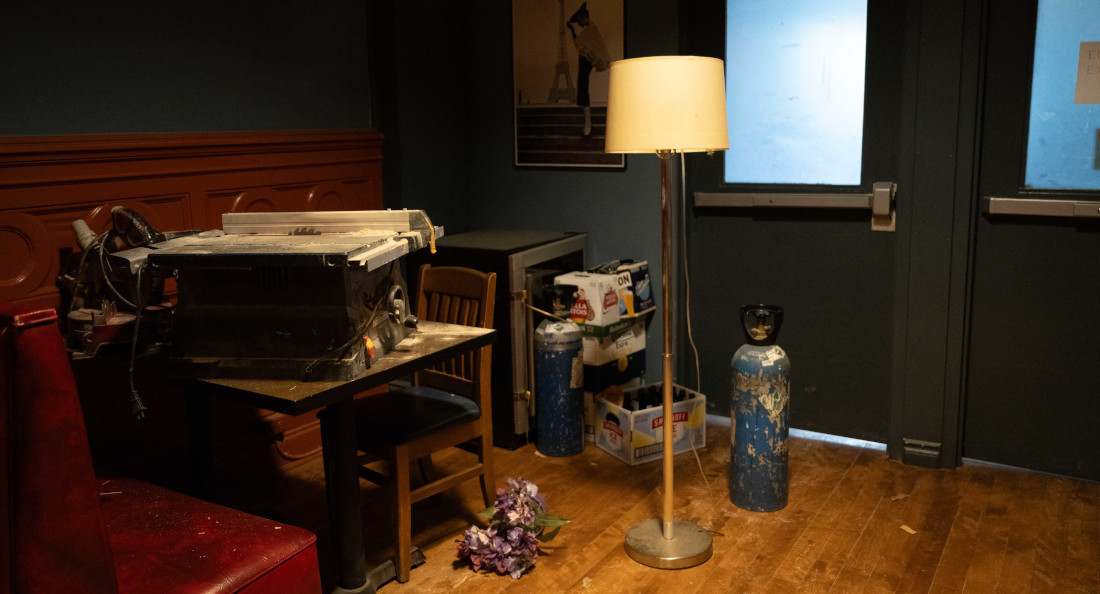
The Albert has gone (and is going) through renovations. The venue undergoes three changeovers during First Fridays. Staff and vendors tear down the café to transform it into a dancefloor, while the main area by the stage is transformed into a craft market. In the evening, it will change back into a dancefloor and lounge. Friday, Feb. 2.
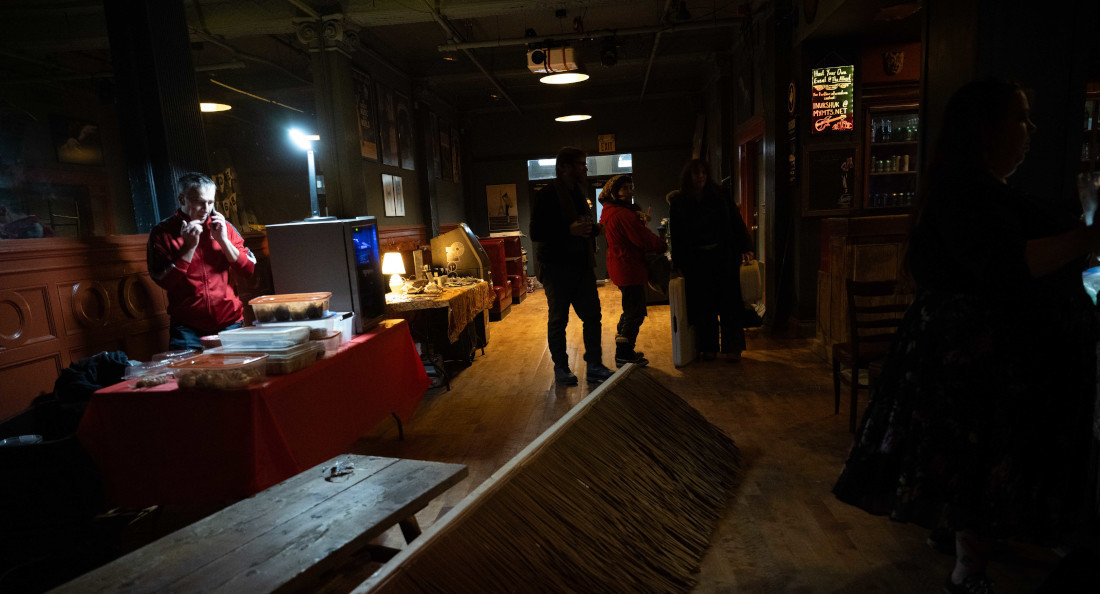
“(The Albert features) theatre, arts, music, fashion.” - Dave McKeigan
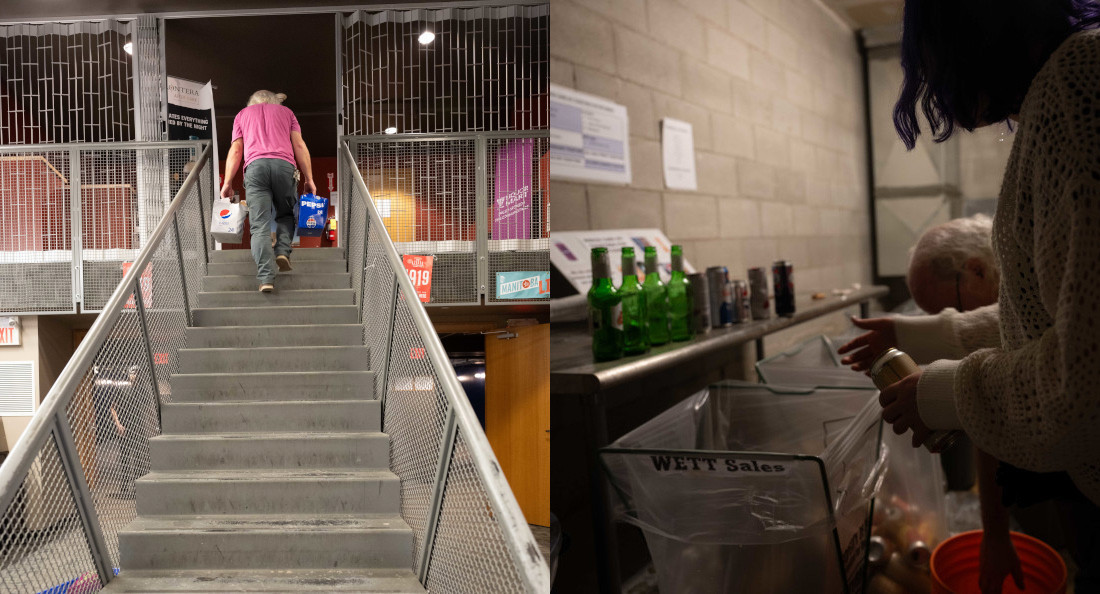
Left - Mark Cohoe, assistant house manager and sometimes volunteer at the West End Cultural Centre, teaches new volunteers how to sort empties on Thursday, Feb. 1.
Right - Venue work isn’t always glamorous and often involves cleaning and sorting. At the WECC, they try to sort everything, including compost. Thursday, Feb. 1.
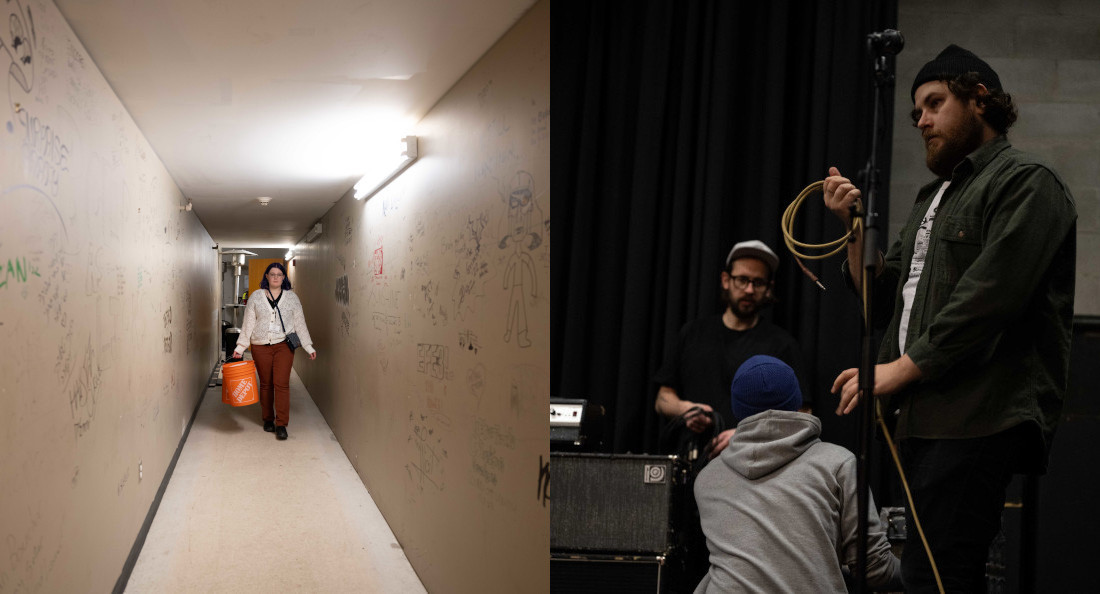
Left - A volunteer at the WECC. Thursday, Feb. 1.
Right - Even at static venues, production folks start setting up earlier than most people would think. Thursday, Feb. 1.
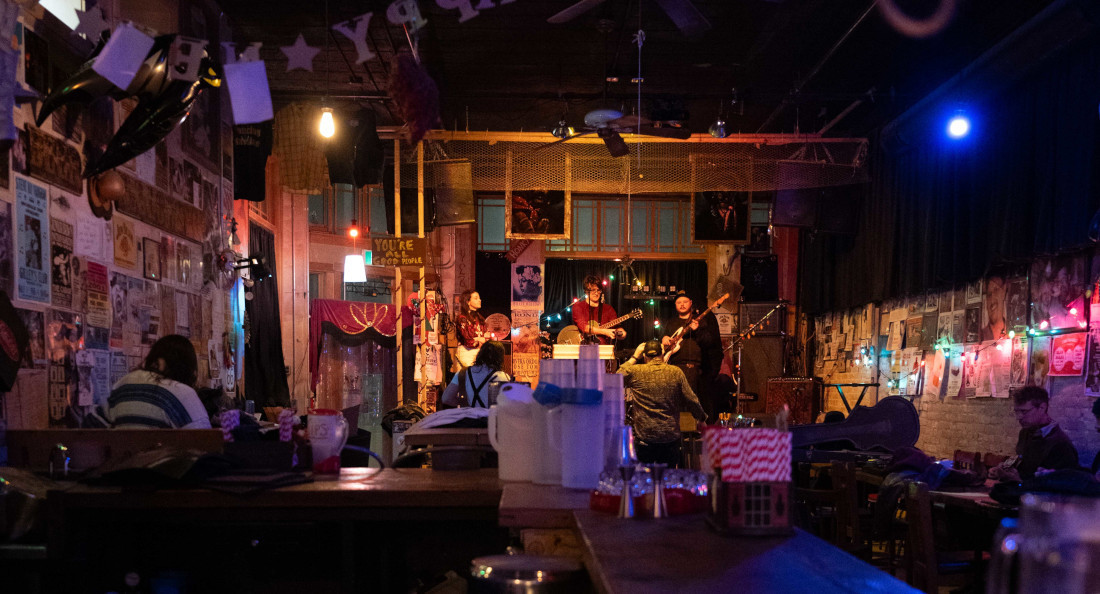
Holy Void, Mahogany Frog and Tie Guan Yin soundcheck at Times Change(d). Saturday, Feb. 3.
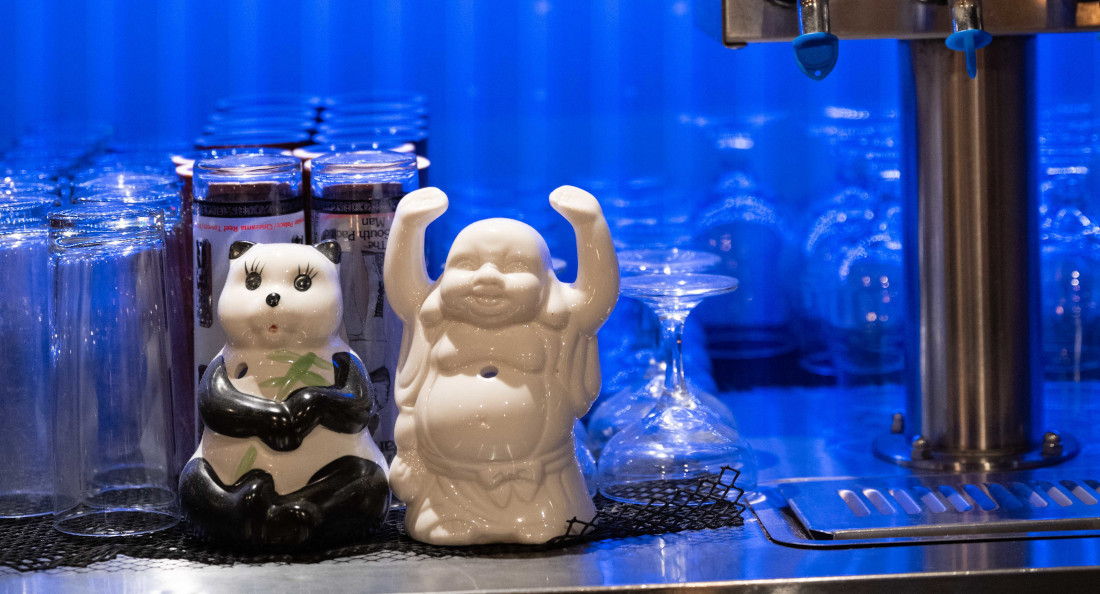
On the bar of The Handsome Daughter
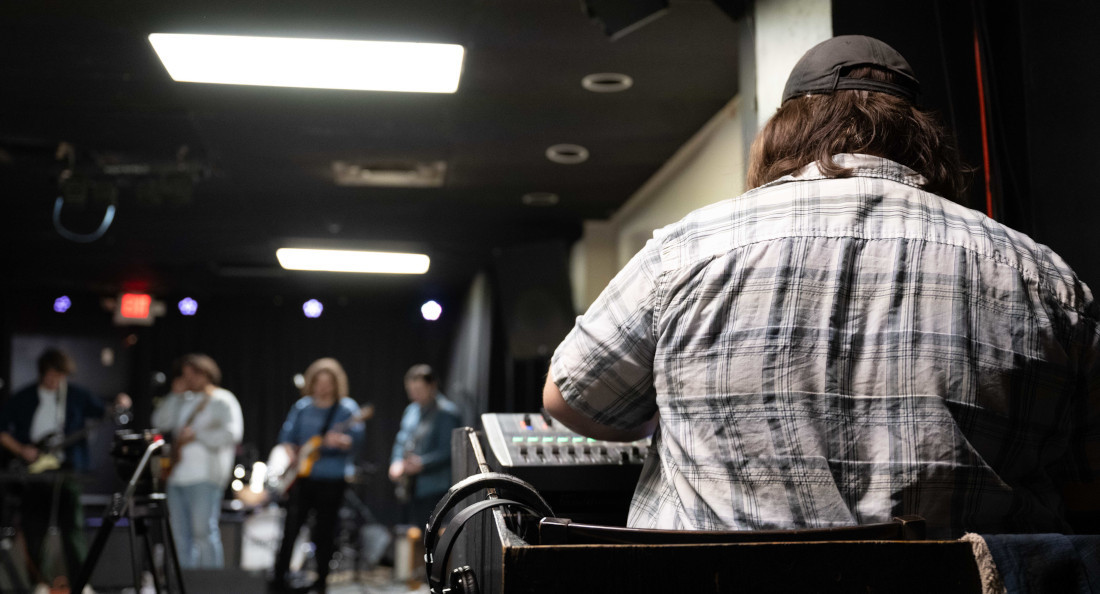
Soundcheck at The Handsome Daughter with the Love Letter Writers
All sorts of folks work in production and operations during shows, including sound and light technicians – and don’t forget photo and video crews.
Published in Volume 78, Number 17 of The Uniter (February 8, 2024)

